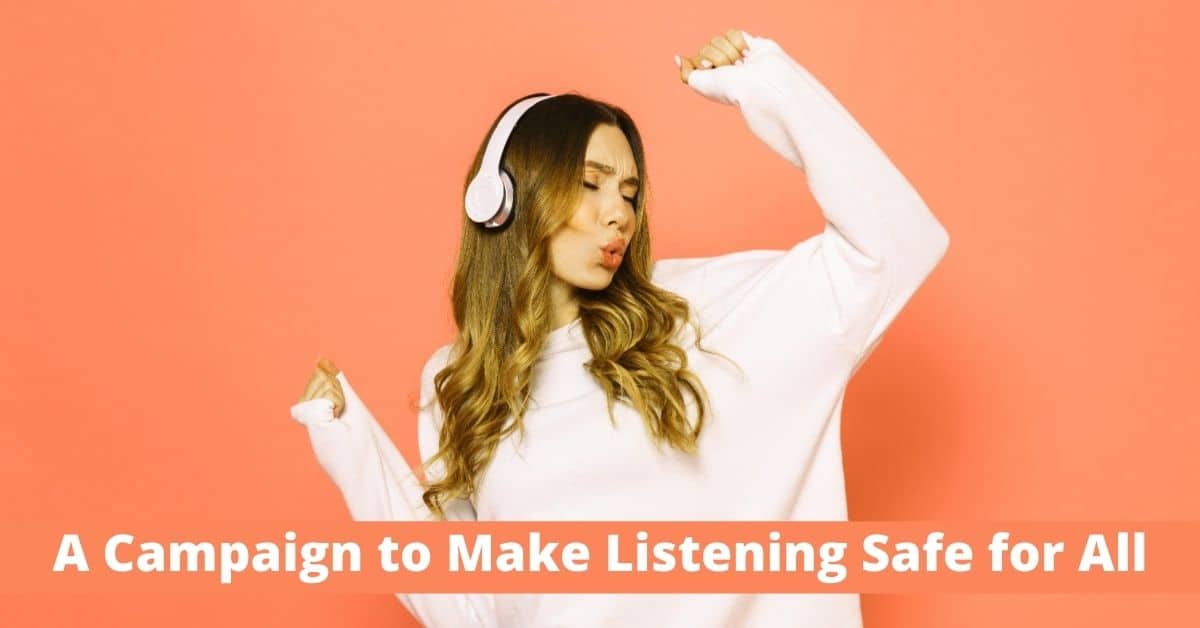
- How to Properly Clean Your Hearing Aids - April 15, 2024
- How to Handle Ear Infections With Hearing Aids - April 5, 2024
- Strategies for Working Professionals with Hearing Loss - March 27, 2024
While people generally think of hearing loss as a sign of old age it is important for people to understand that you can develop hearing loss at any age. With more traffic, more construction, and more information seemingly endlessly streaming into our ears, understanding the dangers to our ears is more important than ever.
A study from the Center for Disease Control compiled hearing tests from 2011-2012 and found that 10 million adults under 70 or 6 percent of the total population suffered from hearing damage brought on by excessive noise. To raise awareness and take action against a growing population of younger people dealing with hearing loss, The World Health Organization has created the initiative “Make Listening Safe workgroup.” This initiative is aimed at education around hearing safety and creating strict guidelines in order to protect the greater population.
Noise induced hearing loss
Noise induced hearing loss (NIHL) occurs when noise crosses the threshold of 85 decibels, damaging or destroying the tiny hairs and cells of the inner hairs called cilia in the inner ear. The higher the decibel levels the quicker and more severe NIHL occurs.
At 85 decibels over an average workday of eight hours damage to the inner ear can occur. As the decibels rise the more damage can happen more quickly. Engines sounds such as a motorcycle or chainsaws create about 100 decibels of sound, which can cause damage in less than 30 minutes. A gunshot can reach up to 130 decibels causing permanent hearing damage instantaneously. The more we understand the risks around us and proper guidelines are put in place, the more chances we have to protect our precious and fragile hearing.
Who is most at risk?
It is important to understand that once NIHL occurs that it is irreversible so it must be taken seriously. Besides making it hard to hear, hearing loss affects how we communicate, which in turn affects our relationships and home and at work. Our self-esteem, mental health and sense of independence suffer when we struggle to communicate.
One of the greatest risks to hearing loss is one that most people in this day and age come in contact with. Worldwide 1.1 billion teenagers and young adults are at risk of hearing loss due to the unsafe use of personal audio devices. Earbuds and headphones may seem harmless because everyone uses them but the decibel level emitted can easily soar over 100 decibels. Because of the amount of time that people tend to listen and unlimited sound information streaming over the internet, personal listening devices are one of the greatest threats to the hearing of people of all ages.
Today’s guidelines
Recommended listening practices state that the maximum exposure should be under the average of 80 decibels for 40 hours. This includes exposure at work, street noise and personal listening devices.
At work, it is the responsibility of your employer to measure the level of sound in a workplace and provide hearing protection for all employees. Whenever you suspect that your hearing is at risk you can use applications on your smart devices and computers, which can measure the decibel level in a space to ensure that you are within safe listening levels.
However, it is difficult to monitor and control the listening levels on personal listening devices. In 2018 WHO published “Guidelines for safe listening devices/systems”, which stated that the weekly sound dose, of personal music players, should be limited to the equivalent of 75 to 80 decibels for 80 hours, weekly. WHO’s current campaign seeks to limit the available output of personal listening players to a maximum of 95 decibels.
Safe listening practices
For now it is important to understand the limits of safe listening and protect yourself and others from permanent hearing damage. When listening to headphones make sure to keep your listening level below 60% of available volume and take listening breaks every hour.
For more information about how to keep your ears safe contact us! If you believe you are dealing with hearing loss, we can help you explore your options and help you find the best solution for your hearing needs.
